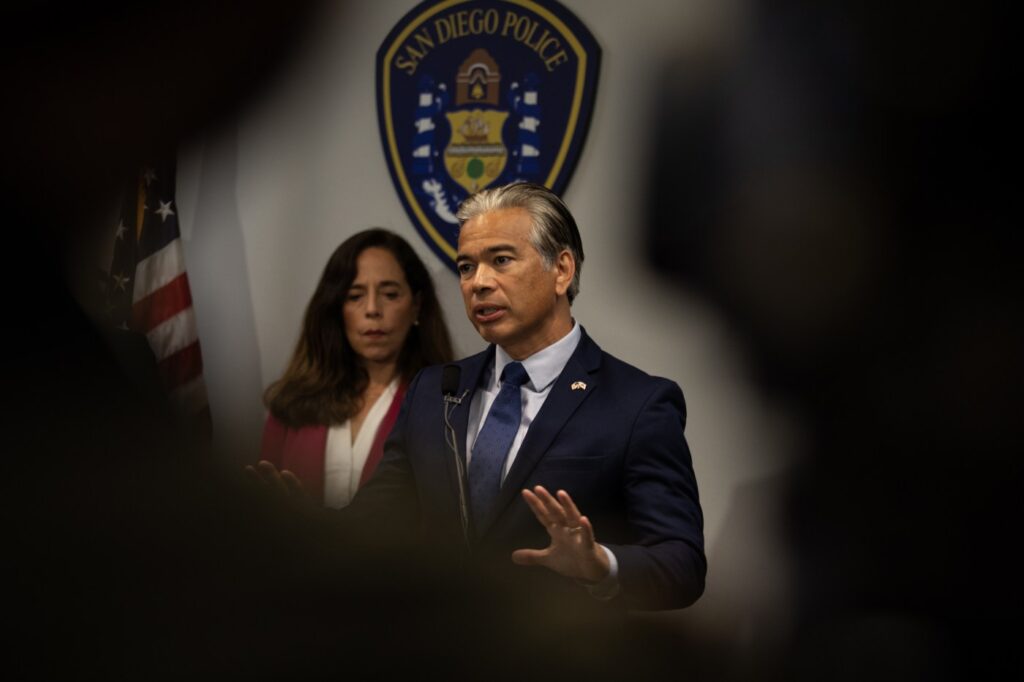
In the span of just over a year, California Attorney General Rob Bonta dropped a pair of lawsuits on energy producers. In the first, he claimed it’s time to make oil companies pay for “engaging in a decades-long campaign of deception and creating statewide climate change-related harms.” It is one of more than 30 such lawsuits around the country. The second action, filed Monday, sues ExxonMobil over the industry’s “deceptive public messaging regarding plastic recycling.”
Neither are heroic efforts to safeguard the environment. The former will primarily harm families by worsening the nation’s pervasive affordability problems. The second is a clear effort to extract “multiple billions” from ExxonMobil while maximizing political optics in a state where the majority of voters will support anything they are told is good for the environment, especially when oil and plastic are the villains.
Of course, harming families, especially in vulnerable communities, as well as local businesses through higher energy costs, is not how Bonta justifies his lawsuits. They’re being sold through populist tropes about corporate accountability. Referring to his climate lawsuit, Bonta admitted in April that one goal for the litigation is to make oil and gas “more expensive” as a way to disincentivize the use of these energy sources and impose “billions of dollars” in costs that these companies will “have to share with their shareholders.”
While ignoring the impact on workers – increasing companies’ costs reduces income growth for employees – Bonta recognizes that the lawsuits will only “disincentivize” fossil fuel use by imposing a significant share of these costs on consumers, whose financial stability will be rattled.
The Federal Reserve explained what’s obvious here, that “when gasoline prices increase, a larger share of households’ budgets is likely to be spent on it, which leaves less to spend on other goods and services.” It’s the same for businesses, “whose goods must be shipped from place to place or that use fuel as a major input (such as the airline industry). Higher oil prices tend to make production more expensive for businesses, just as they make it more expensive for households to do the things they normally do.”
If the climate suit is able to extract a $200 billion settlement, which is much less than what the plaintiffs are asking for, then the price of gasoline would spike by 62 cents a gallon. That is a more than a 13% increase in the average price of a gallon of gas in California as of September 24th.
Further, due to energy’s ubiquitous use, prices would also increase for a wide range of goods such from cell phones to groceries, as well as services, particularly heating and cooling our homes.
Making matters worse, climate litigation discourages the allocation of capital toward development of potential clean energy innovations, including technologies that were once heralded as important sources of low-emission energy but now face the same serious litigation exposure.
For instance, increasing use of natural gas is a central reason why carbon emissions have declined over the past 20 years. As the U.S. Energy Information Administration (EIA) has noted natural gas has played a pivotal role in reducing U.S. energy-related carbon emissions.
Related Articles
Former Labor Secretary Robert Reich manages to be wrong about almost everything
Beware of the government’s push for a digital currency
County managers failed our animal shelter
Foster kids’ benefits belong to kids, not the counties
Enough is enough: Orange County’s taxpayers deserve accountability and transparency
In the most recent lawsuit, Bonta claims ExxonMobil deceived Californians for nearly 50 years “by promising that recycling could and would solve the ever-growing plastic waste crisis,” even though it knew that it could never handle “more than a tiny fraction of the plastic waste it produces.”
It’s perfectly reasonable to wonder just what Bonta, in this battle in the larger California war on plastic, believes would have been a better alternative. Is he upset that plastic has become central to modern life? Is he not aware that “simply switching to another material without considering the consequences” is not just “dangerous,” it’s also a puzzle that has vexed “many environmentalists and sustainability researchers” alike? Bonta is apparently also unaware that CalRecycle has zealously promoted plastic recycling. Maybe he should sue that agency, as well.
He won’t, though, because there’s no political gain to be realized. In California, the bad guys, apparently, are found only in the private sector.
Kerry Jackson is the William Clement Fellow in California Reform at the Pacific Research Institute. Wayne Winegarden is a PRI senior fellow in business and economics.
